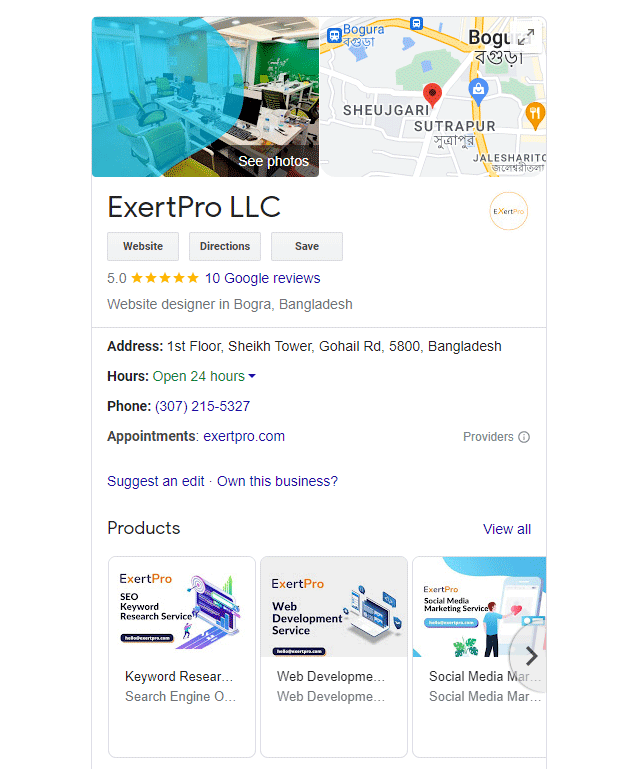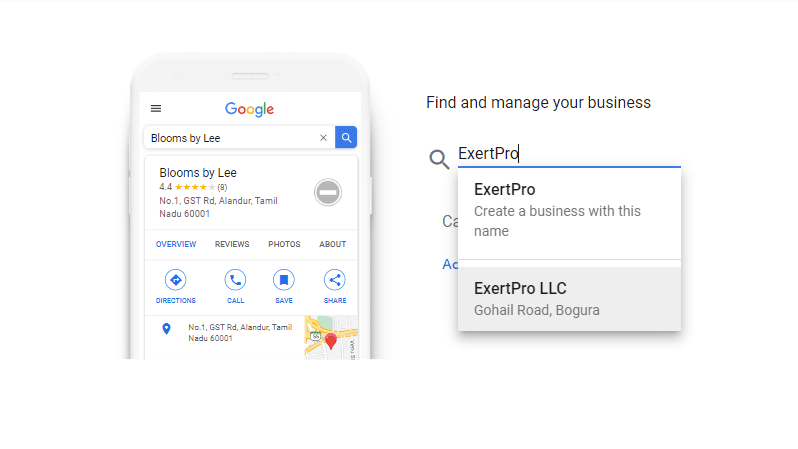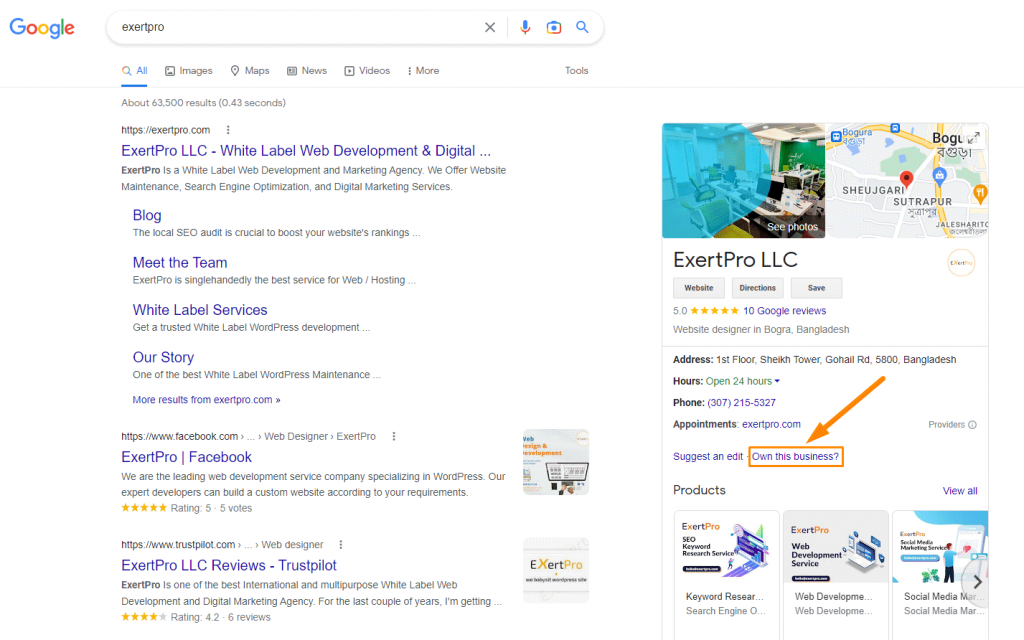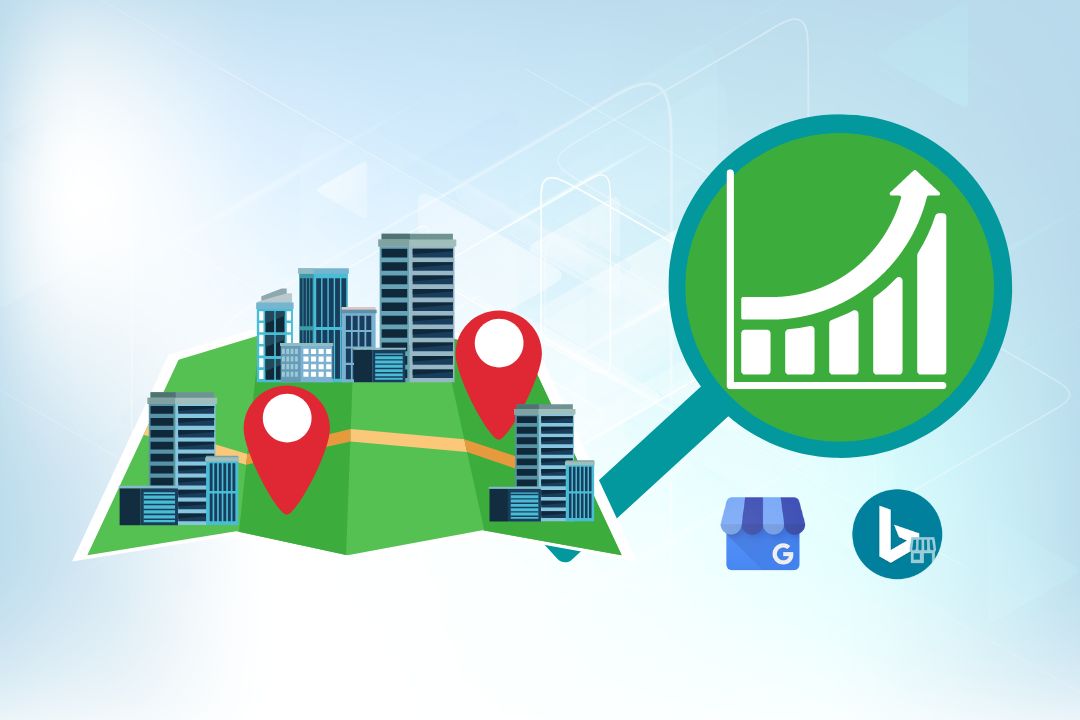Knowing about the Local SEO Ranking Factors is extremely important so that you can influence these factors to work in your favor. To outrank your competitors, the Local SEO focus on listing your Google My Business and optimizing your website.
Local SEO is your website optimization practice through which you can earn more leads and increase traffic. But there are some factors following which will increase the possibility of greater ranking. Now in this article, we will discuss all those factors in detail. So, let’s start the discussion:
14 Local SEO Ranking Factors You Need to Know

Searchers quickly found your website or business details on search engines due to the perfect implementations of SEO ranking factors. Some of the mentioned worthy local ranking factors are Google My Business ranking factors, Bing places for business & social listing. Also, some more factors are NAP, CTR, localized content, keyword optimization, on-page location, backlink profile, etc.
Also, the title and Meta description, domain authority, and mobile-friendly website are equally important factors. Now below, in the following sections, we will discuss the details of all these factors. So, let’s begin:
1. Google My Business Ranking Factors
When local searchers search for your business in a specific area, based on geographical relevance and proximity, Google will rank your business. But Google also looks for your “Google My Business” profile activity. Therefore your Google My Business profile is an important ranking factor.
Google My Business is the previous name of My Google business profile. You can claim your Google Business Profile free or at no cost. For improving your local SEO, this is one of the practical and simplest ways. You can deal with your business profile in two ways, and those are:
First Method: Enter the business’s name and address and then from the search results, choose it

Second Method: On Google Maps or Google Search, find your business and then click on “Claim this Business.

- Google Business Profile Categories
Your Google Business Profile is the first and vital starting point to optimize your local SEO ranking. Therefore, claim it first. Ensure that your business profile is accurate and complete. Choose the business categories, ask for reviews, get ratings, and respond to positive and negative reviews.
Your potential customers who are looking for your business products and services can quickly get connected with the help of Google business profile categories. Categories help your customers connect with you by describing your business to them.
Specifically, choose your business’s primary category that will describe your business well. For example, if you are a beauty salon owner, select “Beauty Salon” instead of “Salon.”
However, while creating your Google Business Profile, make sure you have included the following information:
- Name
- Address
- Opening hours
- Address
- Character, and so on
- Photos On Google Business Profile
You can add your business product’s photos and videos on your Google Business Profile or Page. You can add pictures of your products, services, location, staff, etc. Photos greatly help to improve the local ranking signal. Moreover, it adds credibility and interest to your listings.
2. Bing Places For Business
The most used search engine worldwide is Google, but Bing also holds a small share of the world market. The search engine also uses the information that you place on Bing to rank your business or site.
Bing better understands your business through the business listing. Therefore it is another important local ranking factor. So, set up your Bing Places for Business and cover all the market or search engine bases.
3. Online Citations
You can claim your business’s presence on other online places through online citations or directories. Long ago SEO professionals accepted citation as a key ranking factor. Moreover, they also focused on the consistency of citations. However, some of the popular online directories for citations are:
- Yelp
- Foursquare
- ExpressUpdate
- Neustar
- Acxiom
- ChamberofCommerce
- CitySearch
4. Social Listing
At all popular social sites, your business should have a minimum claim. The popular social business sites are LinkedIn, Twitter, and Instagram. Social listing increases your site’s overall trust, relevancy, and worthiness. And that’s why this ranking factor is also essential. According to Harvard Business Review, listing on social review sites is a compelling factor.
According to Harvard research findings, the YELP rating’s one-star improvement of your business leads to an increase in business revenue by 5-9%. However, list your business on the following sites to get reviews:
- Vk.com
- Myspace
However, the most potent factor is getting reviews on Google, but listings of your business on all these sites are not negligible at all.
5. NAP (Name, Address, and Phone Number)
While using your business’s name, address, and phone number, be consistent with it. Using consistent information will allow Google to provide accurate information to the searches. Also, your potential and actual customers can easily communicate with you if you use the same information everywhere. Simply using different entities and names can create confusion for both Google and your customers.
6. Structured Data Markup
For your business’s local SEO purpose, you can use Structured Data Markup in several ways. Some of the easy ways are:
- Website
- Multiple departments
- Address
- Phone Number
- Hours
- Menu, etc.
Google significantly recommends all these marks up mentioned above. However, for adding markups, you can use different tools like Google’s Guide, Schema, etc.
7. CTR (Click-Through Rate)
One rule of thumb is that you will get a better result from Local SEO if you succeed in general SEO. This genuinely makes sense, right? So to get a better result, you must focus on your content’s description and Meta titles. Make sure you are making great descriptions and titles so that users can easily find you. Moreover, visitors will visit your site only when they will find you easily.
8. Localized Content
The key to success in Local SEO is the content’s consistent publication. So, firstly you have to set your ongoing content goal. And then, to ensure the desired result, measure the progress. Organically include the term and location of your business in your content to get a greater outcome.
For example, you can share the story or effort you put into local charity fundraising and write about the local events. Also, don’t forget to include your local community-related vital topics. , do all those things which will be fruitful for your business or make sense for your brand.
9. On-Page Location + Keyword Optimization
While optimizing your business for local SEO, you should focus on keyword optimization and on-page location. Focusing on on-page location will significantly help your visitors to find your site in local searches. For example, you should not optimize only for “Plumbing Services.” Instead, you should optimize for “Plumbing Service Orange County.” Simply focus on optimizing the location along with the keyword.
10. Title + Meta Description
Both the title and Meta descriptions include the keyword and location. This one extends the previous factor: on-page location + Keyword optimization. But this factor is also crucial, and therefore we are mentioning it separately.
11. Inbound Links & Anchor Text
Using local inbound links and keywords in anchor text has become a challenging goal for many of us. Use your neighborhood and city to get an inbound link from a high authority site. And also, add the primary keyword or key term.
12. Backlink Profile
Creating a backlink profile is another crucial influential ranking factor. It increases the opportunity for your content to rank higher on the search engine compared to your competitors. Even when you are doing everything perfectly, a backlink can break or make your SEO.
After creating a backlink profile and analyzing the backlink, no SEO audit becomes complete. Also, the same rule is valid for Local SEO.
13. Domain Authority
Moz developed a search ranking authority named the Domain Authority. The domain authority predicts the likeliness of your website to rank. Increasing the domain authority can sometimes be challenging. But, once you successfully increase the authority, it will pay off handsomely for your business.
14. Mobile-Friendly Website
Mobile responsiveness is one of the most outstanding features to consider for local search engine rankings. It is important because Google doesn’t look at your desktop site first; instead, it checks the mobile site. Therefore we recommend making a mobile-friendly website to get a better ranking.
Frequently Asked Questions
What are the most crucial local SEO ranking factors?
Some vital Local SEO ranking factors are On-Page SEO, backlink profiles, Google My Business, Online citations, etc. Also, some more are search personalization, behavioral signals, and social media.
How to improve Google’s local business ranking?
To improve your local business ranking on Google, you must enter complete and consistent data, verify your locations and keep your hours accurate. Also, you need to manage and respond to reviews, add photos of in-store products, relevance to product details, etc.
How much does ranking one on Google help local businesses?
Ranking one on Google greatly helps local businesses as organically, and more local visitors get to know about your business. Ultimately overall traffic, local or actual audience increases, leading to more business sales. In a word, ranking one on Google raises the growth and development of your business by increasing your ROI.
Final Thoughts
Hopefully, after going through the above article, you will know the major Local SEO Ranking Factors. Actually, the fact is one of the competitive fields in SEO is local SEO. But for your business’s growth and improvement, local SEO offers enormous opportunities. So, you have to focus on this.
Following the above list will surely help you to be included in the Local Pack of Google. Most importantly, it helps your business connect quickly with local customers.





